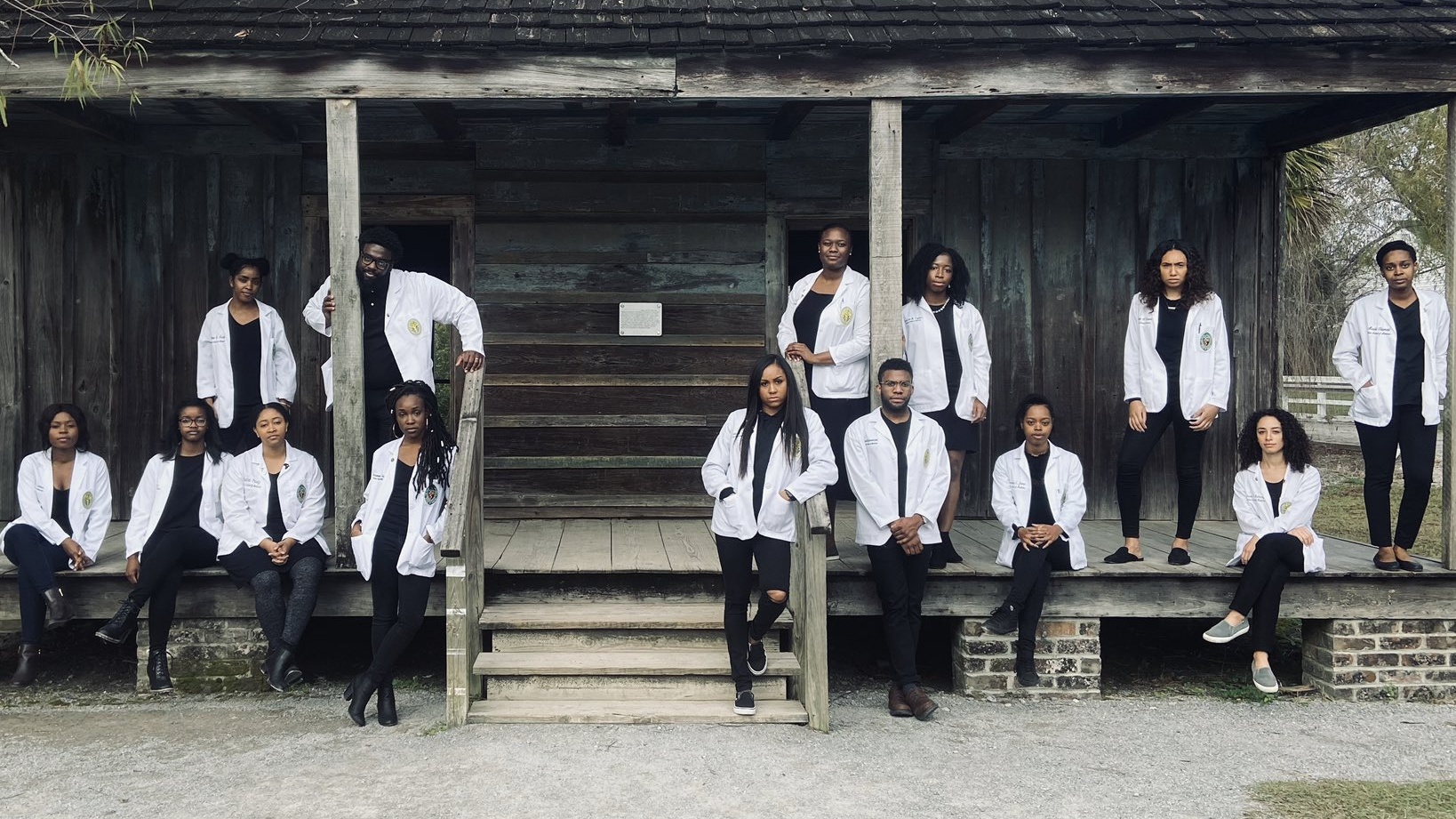A group of Black medical students honored their ancestors by posing in front of slave quarters at a Louisiana plantation on Saturday.
Sydney Labat, Russell Joseph Ledet and 13 other Tulane University medical students were showered with love on Twitter after they posted a photo standing in front of a house on the Whitney Plantation in Wallace, Louisiana. The post has since racked up nearly 100,000 likes.
Standing in front of the slave quarters of our ancestors, at The Whitney Plantation, with my medical school classmates. We are truly our ancestors’ wildest dreams ✨✊???? pic.twitter.com/d8E1g2Ojbm
— Syd✨ (@_botttt) December 14, 2019
We are our ancestors’ wildest dreams.✨
In the background, an original slave quarter.
In the foreground, original descendants of slaves and medical students. #whatatimetobealive
#yeahwecandoboth
pic.twitter.com/INOUMmc1cx— Russell Joseph Ledet, Ph.D. (@theguywithyes) December 14, 2019
Some of the students spoke to Good Morning America about the photo.
Labat told Good Morning America that they wore shorter jackets in the picture to signify they were students. She said they would get longer white coats when they graduated.
The 24-year-old said part of what is helping her get through medical school is her "ancestors' resilience."
"I think I speak for myself and my classmates that it was an extremely humbling experience, to say the least. We would not be here without the strength and determination of those enslaved and their strength to live and to press on. It was incredibly unifying," she said.
"We all have our own stories, but we can all relate and feel the power in this space. Hopefully, that resonated when other people saw it," she added.
Ledet, a second-year student at Tulane, said they wanted to illustrate the history behind their presence as medical students at the university.
Another student told ABC that they felt "empowered to be with my classmates in the photo."
In a follow-up interview with CNN, Ledet explained that he was inspired to take the photo because of a previous trip to the same plantation with his 8-year-old daughter who was horrified by the history.
“Her insight [to the visit] was, 'This is not fair. This is not supposed to happen.' So I had this idea that we need to get the Black medical students at Tulane and we need to come here. We need to do this for ourselves,” Ledet said.
In an Instagram post, Labat wrote that standing on the steps of the slave quarters was a moving experience for her peers.
She later explained that all of the students hoped the picture gained popularity because of how inspiring it was for future generations.
“We hope that we will make a lifelong impact … and let [students] know: Yes, you can be smart. Yes, you can be successful … and you can also do that while being unapologetically black and proud of where you come from and proud of where you are going,” Labat told CNN.
“You just get a feeling, and you think this is going to be impactful and this is going to mean something. It’s not about going viral or the attention … it’s about being inspirational,” Labat added.

